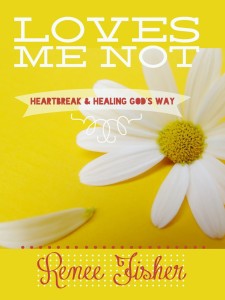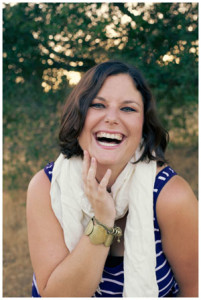The Father of Lies has to start somewhere. If you believed, truly believed with all of your being, with all of your heart, your strength, your mind, and your soul that the God of the Universe loved you and held you in the palm of His hand, then Satan would be utterly defeated. Satan would have no hold on our hearts if we believed that God loved us as passionately as He does.
Satan’s biggest defense, one of his greatest weapons against us, is doubt. If he can get you to start doubting that God loves you then he begins to work his way into your heart and soul. He doesn’t come at our hearts in big, obvious ways because then we would see him coming and avoid him. Satan is not the giant sink-hole in the street waiting for you to drive into it, we would simply drive around it. Satan isn’t even the giant sink-hole in the middle of the street with an asphalt-colored tarp draped over it, for even that would be too obvious.
Satan is far more like a tiny nail in the street that you drive over that pokes a tiny little hole in your tire. You don’t realize you drove over the nail, and chances are you don’t hear the air slowly leaking out of your tire. In time, though, your tire goes flat and Satan has hindered your ability to go anywhere or do anything with any amount of ease.
So, how can we avoid the nails in the road if we don’t see them? Do we have to check our tires every night and listen for the leaks before we can go into our houses? Not necessarily. We need to learn to see clearly, to prepare ourselves for the nails and recognize them for what they are. We recognize them by starting with the first lies Satan tells us as women. Just as we learned as little kids, once you tell a lie you usually have to tell another lie to cover up the first one, and another lie to cover up the second lie, and on and on we go. So does Satan. We must uncover the lies and be aware that he uses them to build even more lies because his main and only goal is to keep us away from God, locked in a pit of desolation, just as he is. …
Have you ever felt unnoticed? Unseen? Have you ever felt that no matter what you did no one would even take notice? You could put on the most beautiful dress, get your hair and make-up done, and still no heads would turn. You could dress like Julia Roberts in the opening scenes of Pretty Woman and there would be no Richard Gere there to pick you up in some fancy foreign car. We feel unseen. As women we long to be found beautiful, stunning, attractive, sexy. One of my favorite books sums up what we long for in the title: Captivating. We want to walk in a room and light it up. We want heads to turn, people to take notice that we are there and we are radiant. We possess within our very souls something magical, something mystical that shines and begs to be noticed.
That isn’t to say that every woman wants to be the center of attention when she walks in a room, many women do not. Some of my best friends would actually hate walking into a room and having everyone stare at her beauty. They would fear all the attention and wonder if they had something stuck in their teeth or that there is toilet paper stuck to their shoes. Those same women who don’t want to be the center of attention will admit that they at least want one person to take note when they enter a room.
Satan knows this about the heart of women. What is the first lie that he often tells us? We are unseen. He whispers it to us, “No one notices you. No one sees you. No one cares. There is fundamentally nothing at all that is special about you, and therefore no one bothers to take notice of you.” We hear him and we begin to believe him.
– – – –
This post is an excerpt from Amanda’s book Worthy.
About the blogger: Amanda Mortus is a woman after the Eucharistic Heart of Jesus. Amanda is also a Colorado native, who graduated from Belmont Abbey College in North Carolina in 2009 with a B.A. in Theology, as well as minors in Psychology and Philosophy. Amanda is a youth minister and author of Worthy, available now on Amazon, Kindle, and CreateSpace. Signed copies can be ordered through her website. She is a Managing Editor at Ignitum Today, and an Associate Editor at Catholic Lane. She blogs at worthy of Agape.





